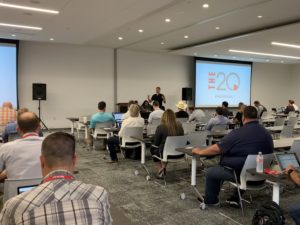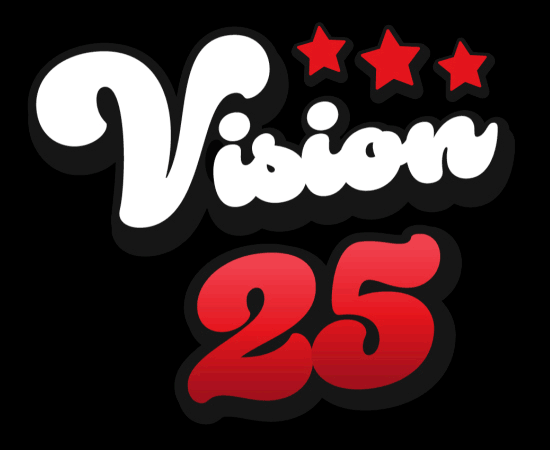
by Michael Pascuzzi
Digital transformation and innovation are becoming the keystone of modern business strategy. Automating facilities, collecting and analyzing more information, streamlining actions, and creating fresh ideas all require complex procedures. Complex doesn’t have to mean complicated. Moving processes to cloud architecture is viable and introduces high ROI possibilities. However, moving is not without cost.
Where Cloud Costs the Most
Business units often move to the cloud independent of the whole, obscuring the visibility of cloud resource consumption.
It’s become all too easy for anyone within the organization to buy or subscribe to cloud services and bypass centralized procurement or specified procurement policies. These bypasses lead to unforeseen, unplanned, unbudgeted spends.
When it comes to IaaS, IT spending can grow even faster. Without the right tools in place cloud resources are not optimized; servers can be running 24/7 unnecessarily, and expensive software can be left idling on forgotten servers. Compounding the issue vendors are not forthcoming when it comes to detailing which services have been run up and by whom — resulting in organizations being unable to attribute exact costs of IT spending to the right business unit.
Optimization of Cloud ROI
With visibility into what individual business units are using, the IT department can then begin the process of cost optimization. This type of optimization is a great way to understand end-user needs and preferences. It is also an opportunity to ask users about the value of the technology they have deployed and what problems it is solving. Knowing this can help other business units solve similar issues through better pan-enterprise deployment of such technologies.
Cloud Economics and Collaboration
It’s important to note that many business units require access to the same information. Individual copies throughout a business are redundant and potentially spreads misinformation; this is where cloud economics meets collaboration. Nowadays, it seems inconceivable, and almost lousy form, that co-workers would send hundreds of versions of the same word document across an organization via email. Instead, using a chat platform can help colleagues stay connected wherever they are, but everyone has to be on the same page. For many businesses, Office 365 provides software solutions to achieve these goals, allowing many users to edit a single document concurrently, in real-time via Word.
Still, many enterprises use on-premises Microsoft Office, and while that is a great tool, Office 365 takes collaboration to the next level. The Cloud Easy service from Crayon helps organizations migrate to Office 365 to achieve that next level.
Enhancing the collaboration efforts of your business can be impeded if you lack the appropriately skilled resources. The easy button to overcome such issues is to lean on an expert partner like Crayon to smooth your organization’s digital transformation journey to the cloud.
Interested in learning more about combating increases in IT spending? Don’t miss Crayon at The 20’s upcoming VISION Conference!
And to learn more about The 20 and how we can help your business, be sure to check us out here.
Employee Spotlight: Meet Tiana Ware, Administrative Coordinator
What do you do here at The 20?
I am an administrative coordinator here at The 20 and Roland Technology.
Describe The 20 in three words…
Innovative, Upbeat and Dynamic.
As a kid, what did you want to be when you grew up?
A history professor!
What’s the most challenging thing about your job?
There are times when the job can be pretty demanding, and as a result, I can feel overwhelmed. But I have such a strong support system here that these occasional storms always get weathered!
What do you consider your greatest achievement?
Losing over 150 pounds!
What do you think is the most important quality necessary for success?
Tenacity.
What do you like most about The 20?
My colleagues!
What do you like to do in your spare time? / What are your hobbies?
Traveling for food with the kid, making different vegan meals, attending conferences, workshops and DIY classes.
Where are you going on your next vacation?
Seychelles, Africa.
What’s your top life hack?
If you feel a cold coming on, consume spicy foods and foods with a lot of garlic. It assists in alleviating the mucus in your body, possibly avoiding getting sick all together.
Interested in working at The 20? We’re hiring! Check out our Careers page for more info.
Tell us a little about your MSP…
Network Management Solutions is located in Santa Cruz, California. We serve Santa Cruz, Monterey, San Jose and the greater San Francisco Bay Area. The business was established in 1984 by Greg and Robin Sirakides under the name ‘ComputerLand of Capitola.’ I began working for them in 1998 and offered to purchase the business from them in 2006. I renamed the business in 2009 and began migrating my clients to an all-you-can-eat monthly support model. We enjoy serving our clients and giving back to the community that we live in!
How long have you been a member of The 20?
I believe we’re close to 3 years!
Why did your MSP originally look to partner with The 20?
We wanted to augment our support staff with a 24/7 service desk that was US-based. Additionally, we were already operating a managed IT department and liked the idea of partnering with like-minded MSPs to extend our breadth and depth of skill and location.
Tell us about the biggest change in your business since joining The 20.
Joining The 20 caused me to focus on the type of deals that were win-wins for both us and the client. This meant that I needed to start saying ‘no’ to opportunities, which was one of the best things I could have ever done. Not all deal are the right deals.
What do you like most about being a member of The 20?
The community. I have been a part of other networking groups, but everyone in this group is conducting business essentially the same way — and it helps when getting and giving advice.
What do you think is the most important quality necessary for success?
Having a growth mindset. All businesses make mistakes, including myself, including the service desk — it’s what we learn from those mistakes and how we grow from them that make us better and creates a better offering for our clients.
What are your biggest business challenges?
I have had 2 significant challenges to face in the last 4 years. First: finding and keeping good talent. This business is often a platform for younger people to launch there careers. It’s not a bad thing, it’s just that the churn is hard.
The second issue is that in the course of a 2-year period, I lost my 2 biggest clients to circumstances out of my control. It made my business feel stagnant for several years even though we were still growing; the problem was replacing what we once had.
What are your areas of focus for 2019?
We are making sure to discuss with each of our clients what the current cybersecurity landscape is and ensure that they are as protected as possible.
What advice would you share with an MSP looking to scale their business?
Make sure to start working on process now. Document the way you do business. Scaling is hard when you’re attempting to reinvent the wheel each time.
What book are you currently reading?
I am currently re-reading Traction and implementing more items. I plan on reading The Checklist Manifesto next.
Favorite blogs / podcasts
Seth Godin
The Hustle
Interested in becoming a Partner? Click here for more information!

by Joseph Landes
Managed service providers (MSPs) in The 20 play a very important role in the adoption of cloud IT environments and the evolution of technology for the small and medium-size businesses they serve. This is particularly true with a powerful, yet complex, cloud environment like Microsoft Azure. SMBs look to MSPs in The 20 to expertly optimize itto fit their needs. But MSPs should also be on the lookout for how Azure can improve their own business needs—namely decreased costs and higher gross profit margins.
Here are five tips from Nerdio for The 20 members to optimize Azure costs and infrastructure to increase margins and make more money offering and reselling Azure.
1. Become a Microsoft Cloud Solution Provider (CSP) Reseller
Becoming a CSP reseller makes it easier for MSPs to transact Azure. In addition, CSP resellers receive a discount off Azure list prices via a CSP distributor—typically large providers—and thereby increase margins. CSP resellers are also eligible for various incentives that Microsoft makes available to its CSPs based on growth objectives. These incentives are incremental to the discount received on Azure consumption and can be in the 10% range or more when added up. Reach out to an IT distributor and ask how to become a CSP reseller or visit Microsoft’s website for more detailed information.
2. Leverage Azure Reserved Instances
The cost of virtual machines (VMs) in Azure is the single most expensive component of a typical MSP’s IT environment. Reserved instances (RIs) are reservations of a specific type of compute capacity (i.e., VM family/series) in a specific geographic location (i.e., Azure region) for a predefined period of time (12 or 36 months). Depending on the above specifics, using RIs and reserving compute capacity ahead of time can save you from 20% to 57% relative to the list pay-as-you-go price. They do require some advance planning, budgeting, and structuring of your Azure account the right way, but can significantly increase the profitability of your Azure practice.
3. Capitalize on Azure Hybrid Usage
Microsoft has created a special entitlement called Azure Hybrid Usage (AHU) that allows MSPs to pay for Windows Server via another licensing program and not through Azure. Essentially, you can bring the Windows Server licenses you already paid for to the cloud for free. As a result, the Windows Server OS meter stops spinning. AHU is a benefit unique to Azure; you can’t bring your own Windows server license to other major cloud providers. Combining RIs with AHU and CSP software subscriptions can reduce the cost of VMs by up to 80%. It goes without saying that the margin impact to an MSP from such significant cost reductions cannot be overlooked.
4. Auto-scaling for Cost Optimization
The value proposition of Azure as a public cloud is its utility-like consumption billing model: Pay only for what you use. To do this, MSPs need a mechanism to know what compute is needed and when, and a system that automatically resizes workloads to fit the demand at any given time. This means that if a VM doesn’t need to be on, a system
needs to be in place to know it and act on it by shutting down the VM at the appropriate time and then turning it back on when it’s needed again.
Azure automation platforms do exactly this, as MSPs can set business hours for each VM and tell the system what to do with the VM outside of those hours: leave it alone, shut it down, or change it to something smaller. The system will then automatically execute these instructions, resizing the VM after the end of business hours and then prior to the start of the next business day.
5. Burstable VM Instances
B-series Azure VMs are known as “burstable” VMs. They are used for non-CPU-intensive workloads (for example, domain controllers and file servers) and cost about 50% of an equivalently sized D-series VM. Burstable VMs are cheaper because Azure imposes a quota on how much of the total CPU cores can be used. Every second that the VM is using less than its quota it is “banking credits” that can be used to burst up to the total available CPUs when needed. While bursting, the VM is consuming its banked credits. Once the credits run out, the VM’s CPU utilization is throttled down to a lower utilization quota.
As you can see, these tips provide multiple ways for MSPs in The 20 to optimize their Azure consumption and increase their profitability. Understanding these tips will help you reconfigure their Azure architecture, determine how much margin they can achieve, and recognize how to build a successful and profitable cloud practice in Azure. Nerdio’s automation platform allows the members of The 20 to achieve all of this and much more. Check us out at the upcoming VISION event or on our website at www.getnerdio.com.
Interested in learning more? Don’t miss Nerdio at The 20’s upcoming VISION Conference!
Joseph Landes is the Chief Revenue Officer at Nerdio—a cloud company whose mission is to enable MSPs to build successful cloud practices in Microsoft Azure. He previous worked at Microsoft for 23 years leading high performing international sales and marketing teams. When not visiting MSPs you can find him trying to visit every country in the world or reading great literary fiction.
What do you do here at The 20?
I’m a Support Desk Engineer (After Hours).
Describe The 20 in three words…
Top, Twenty, Percent — lol just kidding, but it seemed like a trick question!
Let’s go with: Crazy, Fun, Fast.
As a kid, what did you want to be when you grew up?
I wanted to be Spiderman until I was about 8, then it changed to playing with anything electronic and getting paid to do so!
What’s the most challenging thing about your job?
Working during off/odd hours.
What do you consider your greatest achievement?
Still being alive!
What do you think is the most important quality necessary for success?
Honesty with everyone you work with, to achieve success in anything you work for.
What do you like most about The 20?
It’s a second family and we look out for each other!
What do you like to do in your spare time? / What are your hobbies?
Music production and beat production for small and up-and-coming businesses and rappers.
Where are you going on your next vacation?
Colorado (I like the cold)!
What’s your top life hack?
When going out to a restaurant for dinner, tell the waiter/waitress that it’s someone’s birthday at the table. Depending on the group, you sometimes will get a free desert or a discount on the bill. This also can work in hotels and other places that a vacationer might go.
Interested in working at The 20? We’re hiring! Check out our Careers page for more info.
Tell us a little about your MSP…
Since 2002, VM Squared has been a leading provider of IT support and consulting, focusing on small and medium-sized businesses in the North Mississippi area. We have helped hundreds of businesses increase productivity and profitability by making IT a streamlined part of operations. We equip our clients with customized technology solutions for greater operational value and to reduce risk.
How long have you been a member of The 20?
Since April of 2019.
Why did your MSP originally look to partner with The 20?
I was at a crossroads. My Marketing Director resigned with no notice for medical reasons and our marketing/sales machine was just gaining traction. I really didn’t need help desk support but badly needed the marketing piece. I talked with Matt King to see how we could make this thing work. I discovered that I could deliver the help desk for much less than it was costing me for my team of 2, and I’d get the whole help desk. I moved forward thinking I’d transition my on-site team to field engineers. I ended up removing 1 and the other is my field engineer.
We will be starting with marketing next month.
Tell us about the biggest change in your business since joining The 20.
Re-aligning my business to work well with The 20 is the biggest change. I not only changed roles around but I also changed our sales process and size of client to seek out (larger).
What do you like most about being a member of The 20?
I enjoy the community and the staff of The 20. They are my extended team and are there to bounce ideas off of — then help you run with them.
What do you think is the most important quality necessary for success?
Process, Process, Process. You cannot scale without well-documented processes.
What are your biggest business challenges?
Sales. I have been doing all the sales and have just not been getting in front of the right people. It goes back to marketing, but I am growing my sales team.
What are your areas of focus for 2019?
Adding prospects with 500-plus endpoints. Becoming the MID for these companies. With sales, the other problems can be dealt with. We are also opening a BCDR Failover facility for enterprise clients. This will give them a physical place to conduct business when their primary facility is disrupted.
What advice would you share with an MSP looking to scale their business?
Get the right people in the right seat on the right bus. Then, get your processes documented and stick to them. Get in front of prospects that match your core values and mirror your best clients.
What book are you currently reading?
I’m always reading or listening to books on Audible. My current books are The Art of Deception by Kevin Mitnick, Clockwork by Mike Michalowicz, and Social Engineering by Paul Wilson.
Favorite blogs / podcasts
I listen to Leo Laporte and read Brian Krebs.
Interested in becoming a Partner? Click here for more information!
Well, that’s a wrap on another successful Quarterly meeting with our partners!
Summer Quarterly was held at our offices at Legacy Central in Plano on July 18th and 19th, and we had an incredible time with all of you.
Our first day saw training from ID Agent, Blokworx, Deep Instinct, and Cytracom! Day 1 was focused heavily on cybersecurity; discussing hacked passwords, the dark web, and how to protect your employees’ credentials. The day concluded with a happy hour sponsored by Cytracom, and featured hours of games, music and good times spent with our 20 family.
Day 2 kicked off with Roland Technology’s Emily Powell who showed our members how to work lead generation to their benefit to help create an efficient lead list. The day continued with special training segments from Password Boss, Datto, and Crayon — the latter letting our partners know about some fun stuff heading their way! CEO Tim Conkle then took charge by opening up the floor to discuss the direction of The 20 with our partners, and how we see our growth in the future. He also discussed things for us to improve upon to get to that next level of greatness.
So much was learned, and so much fun was had – there’s nothing we look forward to more than when we have our partners in town, and in the same room. It’s a tremendous energy, and we’re always sad when it ends!
If you have any questions about future Quarterly events, give us a call! And don’t forget about VISION ’19 coming up in October!

Tim’s opening remarks.

Pre Quarterly Mingling.
What do you do here at The 20?
Offer top-notch IT support as a Tier 1 Support Desk Technician.
Describe The 20 in three words…
Happy
Dynamic
Progress
As a kid, what did you want to be when you grew up?
I always wanted to be a crazy scientist/inventor.
What’s the most challenging thing about your job?
Accepting that at the end of the day, you might not be able to have resolved all issues.
What do you consider your greatest achievement?
My daughter. Despite her being half a world away, we remain in contact.
What do you think is the most important quality necessary for success?
Being aware of both strength and weakness and learning from both success and failures.
What do you like most about The 20?
The happy work culture.
What do you like to do in your spare time? / What are your hobbies?
Messing with computers
Playing games (both board and computer)
Doing statistical/technical analyzing
Watching movies
Where are you going on your next vacation?
A cruise in the Caribbean, including dolphin swimming and ruin exploration.
What’s your top life hack?
Use data to form conclusions. Don’t use conclusions to judge data.
Interested in working with Bryan? We’re hiring talented technicians! Check out our Careers page for more info.
Tell us a little about your MSP…
Carefree Technology was started in California in 2001. In 2014 we moved to Utah to be closer to family, so we now have offices in California and Utah, and thanks to The 20, we have clients in Washington, Oregon, California, Utah and Colorado!
How long have you been a member of The 20?
We joined The 20 in November of 2018.
Why did your MSP originally look to partner with The 20?
We joined The 20 because it was time to grow our business. In 2001, when I quit the best job I ever had, it was so I could reclaim my time and be an active, present influence in raising our 4 kids. As our company grew, I noticed that the more employees we had, the less time I could spend with my family. Somewhere along the way, I made a conscious decision to have a “lifestyle business” so I could maintain my desired quality of life.
In a space of 4 months in 2018, 2 of our kids got married and another left for college. Now that our kids are leaving, it is time to change our focus from maintaining a lifestyle, to preparing for retirement by building a strong, profitable business and The 20 was perfectly positioned to provide the leverage we desired so we wouldn’t have to build and manage our own internal support desk.
Tell us about the biggest change in your business since joining The 20.
Our biggest change since joining The 20 is largely psychological and emotional. We no longer look at a large opportunity and think, “That’s too big for us.” Now we look at those larger environments with a hopeful expectation that we can provide what others cannot.
What do you like most about being a member of The 20?
It’s a toss-up between the Support Desk and the community. I love reviewing ticket notes and activities provided by the Support Desk that I didn’t have to be involved with. However, The 20’s partner community is really unique. I have developed many close relationships over the years with “friendly competitors,” but the level of camaraderie in The 20’s partner community is truly special.
What do you think is the most important quality necessary for success?
To be successful, you need to know what has lasting value and importance to you and your family and then work towards that goal every day. As long as you are working towards a meaningful end, you are successful regardless of how long it takes. The moment you identify what is important and move in that direction, you are a success.
What are your biggest business challenges?
With all the demands on our time, our largest challenge is always maintaining a consistent focus on sales and marketing activities.
What are your areas of focus for 2019?
Working with The 20 has opened the door to much larger clients. Our focus for 2019 is learning how to work with these larger, more complex environments so we can continue to add more of them.
What advice would you share with an MSP looking to scale their business?
Be honest about your shortcomings and find people or organizations who are strong where you need help. For us, that was joining The 20. It has been an absolute game-changer!
What book are you currently reading?
My ADD makes reading quite a challenge; too many shiny things around. However, I love audiobooks on 2x or even 3x speed. This month I have listened to the following titles: The Road Less Stupid: Advice from the Chairman of the Board by Keith J. Cunningham, The Speed of Trust by Stephen M. R. Covey and Anxious for Nothing: Finding Calm in a Chaotic World by Max Lucado.
Favorite blogs / podcasts
If I’m not listening to audiobooks, I enjoy listening to comedians like Jim Gaffigan or watching Good Mythical Morning with my daughter.
Interested in becoming a Partner? Click here for more information!

by Camden Rendon
Wondering if you should intern in college? Internships are fast-growing and more important than ever – for multiple reasons. Internships are proven to help students learn and prepare for the real world after college, because classrooms can only teach so much. Some schools and/or majors require internships in order to graduate, and some just encourage finding one (or two, or three) before graduation. Here at The 20, we completely support the learning process of students, and have opened up three summer internships this year to help in that process. It’s not to be taken lightly – we know that we are helping to shape the next generation of professionals. Here are five reasons that you should intern in college – bonus points if you want to work with us! ????
Network and Learn Under Professionals
Though there are many reasons you should intern in college, this one is reason enough to get an internship. I say this to every new grad I meet – you NEVER know who knows who and who you will meet. Connections go SO FAR in the workforce, to the point that some people hire solely off of referrals. Building connections and networking with people is a great way to learn about tons of opportunities in your field. In addition, learning under industry professionals can be great for your resume. If you get a good mentor to coach you through your internship and teach you as much as possible, you will come out of the internship with information that you can apply in your next (potentially full-time) role. As an intern, it’s your responsibility to be engaging, prepared, and to soak up as much as possible, as there will be so much to learn.
Figure Out What You Want in a Career… and What You Don’t Want
Sometimes we don’t know what we want to be when we grow up – and that’s okay! College makes you feel pressured to choose a major that will fit in with a career, but what happens if you don’t know what you want to do? The best way to test out different roles is through internships. You’ve got to start somewhere to gain experience, and companies are pretty supportive of that. According to NACE, 81% of graduates report that internships helped them to shift their career directions by changing either the focus of classes or their major. You may have your heart set on a particular profession, but after working it for a summer, may decide that it wasn’t for you – or that you like something better. Your college years are the years to explore, make mistakes, and learn from them.
Real World Application
Let’s be real – your college classes and professors can only teach you so much while you’re sitting at a desk. You’ve got the brain knowledge, but what about the real-world application? No number of tests, pop quizzes, or projects will prepare you for what is required in a professional position. You will get to apply your textbook knowledge to things that you will apply in your day to day role.
Full-Time Opportunities Post-Graduation
It’s no secret that interns are usually the first to be considered if a full-time role opens up. According to Forbes, paid internships turn into full time job offers 60% of the time. Interns spend their time getting to know the company, the employees, and the position itself – meaning it’s the easy option when it comes to a full-time role. Companies can cut down on their spending for sourcing, hiring, and training a new employee, since the intern already has that knowledge. It’s important to be prepared, timely, and always give 110% throughout your internship.
Make Your Resume Stand Out
So let’s say for one reason or another, your internship doesn’t turn full-time. That does NOT mean that you wasted your time! Not only are you leaving there with actual, tangible experience, but you should also have some solid recommendations under your belt! In a sea of entry-level graduates and applicants, how can you make yourself stand out? By relating your internship experience to the next position! You’ve already got a leg up on the competition if you join an entry-level role with experience.
Want to join our awesome team? The 20 is hiring interns! Check out our open positions here.






